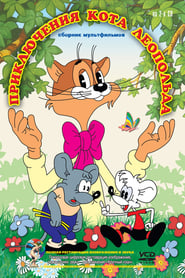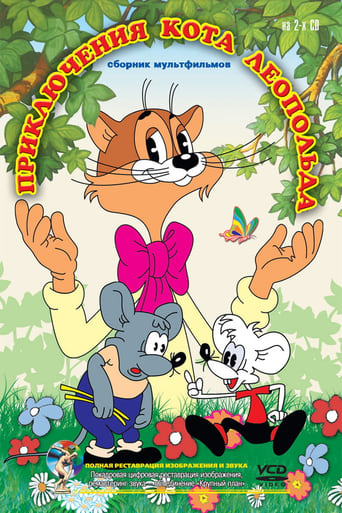"Приключения кота Леопольда" (1975) is a beloved Soviet animated series created by the studio Ekran, which captured the hearts of audiences across generations. The series follows the life of Leopold the Cat, a gentle and peace-loving feline who constantly finds himself at odds with two mischievous mice, who are determined to disrupt his tranquil existence. The animation style, characterized by its simplicity and charm, reflects the era's artistic approach while delivering timeless messages about tolerance and coexistence. The catchy theme song, "Если добрый ты," became an anthem for kindness and understanding, resonating deeply with viewers of all ages. Leopold's character is a standout in Soviet animation, embodying the virtues of patience and forgiveness. Despite the relentless pranks and provocations from the mice, Leopold never loses his composure, often responding with his iconic phrase, "Ребята, давайте жить дружно!" This message of harmony and friendship was particularly poignant during the Cold War era, offering a subtle yet powerful commentary on the importance of peaceful relations. The series cleverly uses humor and satire to critique societal issues, making it both entertaining and thought-provoking. The mice, though antagonists, add a layer of complexity to the narrative. Their antics, while frustrating for Leopold, are portrayed with a certain likability that makes them more than mere villains. This duality reflects the nuanced understanding of human (and animal) nature that the series aims to convey. The mice's relentless pursuit of mischief serves as a foil to Leopold's unwavering kindness, creating a dynamic that keeps viewers engaged and entertained throughout the episodes. "Приключения кота Леопольда" remains a cultural touchstone in Russian-speaking countries, celebrated for its enduring message and endearing characters. The series not only provided entertainment but also served as an educational tool, teaching children the values of empathy and reconciliation. Its impact is evident in its continued popularity and the fond memories it evokes among those who grew up watching Leopold's adventures. As a product of Ekran's creative vision, the series stands as a testament to the power of animation to inspire and uplift its audience.
Año1975
Número de episodios11
Número de temporadas1
Duración del episodio10
EstadoEnded
GénerosAnimaciónKids
Países de producciónSoviet Union


